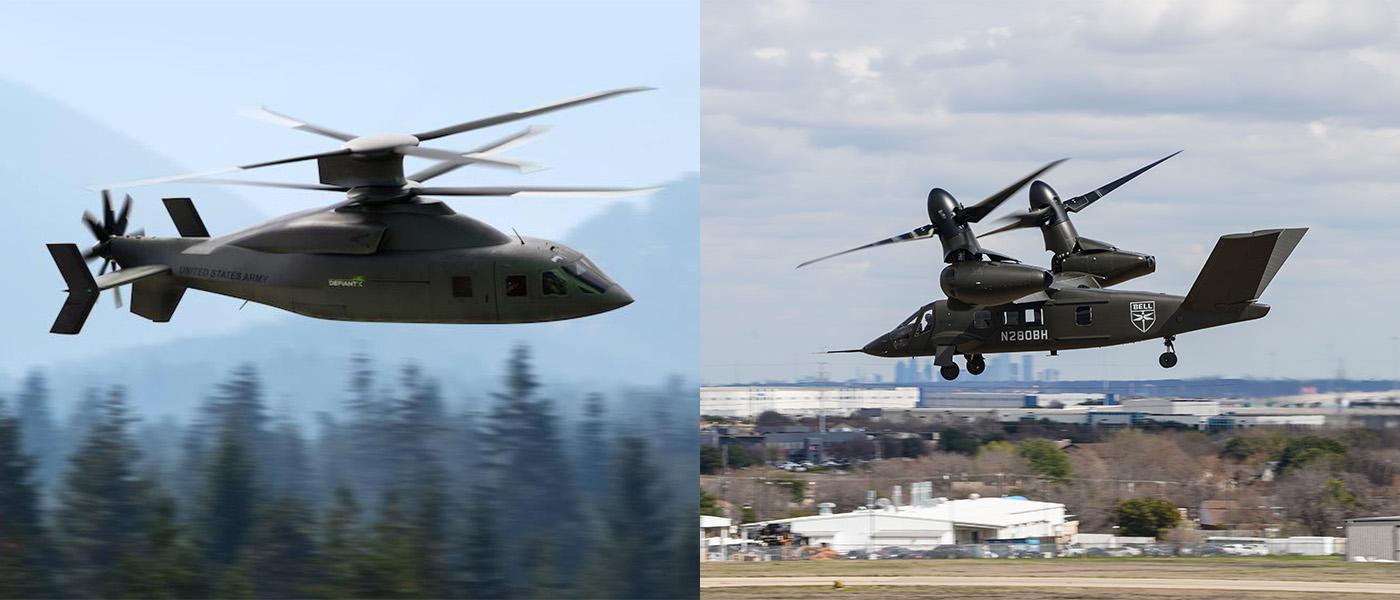
Defiant X (left) and V-280 Valor
The U.S. Army says it will not pay to keep small industry teams intact to continue working on designs for the Future Long Range Assault Aircraft (FLRAA) program after the existing contracts expire at the end of October.
The statement means the competing teams – led by Lockheed Martin/Boeing and Bell – must self-fund the costs or disband the industry teams until the delayed contract award for the service's replacement for the UH-60 Black Hawk is finalized.
The Army awarded contracts worth $292 million to Bell and $284 million to Lockheed/Boeing in March 2021 to complete the Competitive Demonstration and Risk Reduction (CD&RR) Phase II efforts. Those contracts expire at the end of the month, and the timing of the FLRAA contract award remains uncertain.
“The Army will finish the second phase of the FLRAA CD&RR at the end of October 2022. The Army does not plan to add a third phase for CD&RR,” a spokesman for the Army’s Program Executive Office for Aviation says.
The Army originally planned to award the FLRAA contract in mid-year, but Army officials said in July that the award had moved to late September or early October. During the Association of the US Army’s annual meeting this week, senior Army leaders said that finalizing the award could take up to a “few months.”
“FLRAA’s source selection is still underway, and the contract award decision is event-driven. The formal date of the award announcement is contingent upon the completion of the deliberate and rigorous proposal review process and successful negotiations with the winning offeror,” the spokesman tells Aviation Week.
The final decision on FLRAA also is subject to a protest by the losing bidder, which can take up to three more months to adjudicate.
The Army has paid to keep industry teams together in previous competitions with postponed contract awards. The service, for example, awarded GE Aviation and a Pratt & Whitney/Honeywell team contracts in October 2018 to keep their industry teams together for the Improved Turbine Engine Program until March 2019, when the contract was awarded.
FLRAA is one of two programs in the Army’s Future Vertical Lift effort. The second, the Future Attack Reconnaissance Aircraft, will follow.
